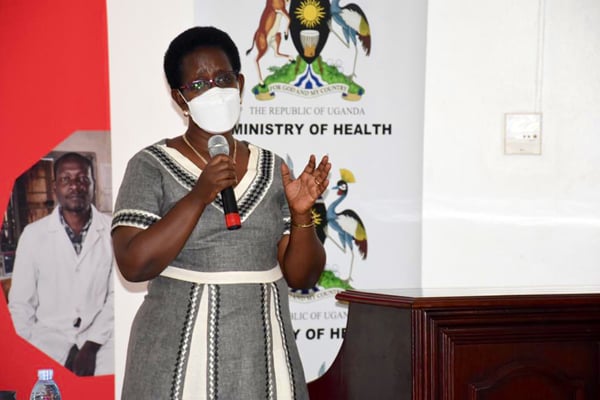Prime
Taking food systems to global center-stage in climate action

Agnes Asiimwe Konde
What you need to know:
Unfortunately, there is no substitute for food unlike, say, fossil fuels where alternatives exist
The world runs on food. Period. Without food, as the cliché goes, every other economic activity would grind to a halt.
It is therefore rather unfortunate that although there is enough food to go around for everyone in the world, the reality is that a large population goes to bed hungry without knowing whether tomorrow will bring better fortunes.
Last year, an estimated 700 million people faced hunger, an increase of over 122 million compared to 2019. At the same time, almost a third of the world’s population did not have constant access to food and even those who had access, their dietary requirements were not met. Unfortunately, the most affected were children, with about 150 million of them under the age of five recording stunted growth.
Yet, the amount of food that goes to waste globally is staggering; It has been estimated that almost 40 percent of the food produced globally goes to waste, with 8 percent going to waste at the farmgate, a further 14 percent wasted in transportation and distribution and 17 percent at the tail end of the supply chain. This state of affairs must be addressed by concerted action because its adverse effects will affect us all, even those who think they are well sheltered from it.
It is an oft-stated fact that agriculture and food systems contribute significantly to global emissions, a situation that exacerbates an already bad situation of a rapidly warming world. It has been estimated that a third of the global emissions are related to food production and distribution. It is among the single largest contributors to greenhouse gases in the world.
Unfortunately, there is no substitute for food unlike, say, fossil fuels where alternatives exist. The only solution therefore is to streamline food systems, substantially reduce harvest losses and improve productivity if we are to make a dent on the negative effects agricultural and food systems have on climate. We must, as a matter of life and death, find the perfect balance between feeding the world and saving it.
It is therefore critical that agriculture and food systems take global center-stage when it comes to climate action. Since we do not have the luxury of time on our side, action must be taken today.
Fortunately, all is not doom and gloom. In the next couple of weeks, agriculture, food systems and the nexus with climate action will take global center-stage during the United Nations Climate Change Conference (COP28) to be held in Dubai from December 1, 2023. These three interconnected and interdependent sides of a triangle will need to be addressed concurrently for an impactful outcome. The Summit will result in a Declaration on Agriculture, Food Systems and Climate Action that will shine a light on actions to be taken for a sustainable future.
More than 100 heads of state are expected to sign the first ever Emirati Declaration on Agriculture, Food Systems and Climate Action at the end of the COP28 Summit in Dubai. This is an impressive commitment that shows the seriousness that this cross section of leaders – from the North and South, developed and developing, and cutting across countries on different climatic zones – are about finding a workable solution to this crisis.
The most important driver for the success of this initiative is innovations and funding. Tackling climate action requires scalable innovations that speak to the planet, people and profit agenda and this comes in billions of dollars but we don’t have the luxury of another planet hence the need to act responsibly now. The Commitments from the Paris Agreement amount to $100 billion annually, but the funding has not yet been realized, we need to move from talk to action. Beautiful blueprints make nary a house. Once again, the talk must now be actioned.
The forthcoming COP28 marks the conclusion of the global stock-take of the Paris Agreement. Essentially, we will now know exactly where we are and what needs to be done to push the process further and faster.
Without belabouring the point, we must showcase proven innovations to solve for soil, water, landuse, markets and affordable finance. Let us put the money where the mouth is, period and let us build in accountability metrics that take the rhetoric narrative out of play. The repercussions of inaction are dire: we will continue sliding into the dark abyss of global warming beyond the point of no return.
Ms Aggie Asiimwe Konde – Director of Innovations, External Engagements & Advocacy AGRA.




